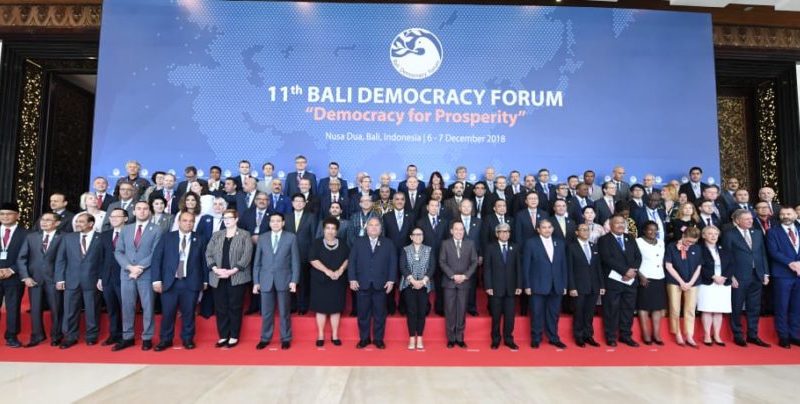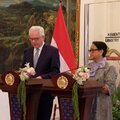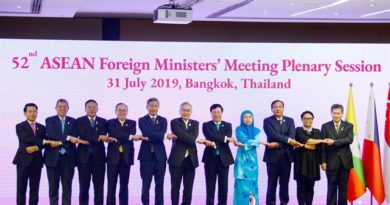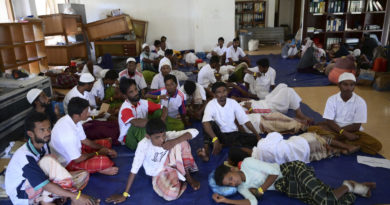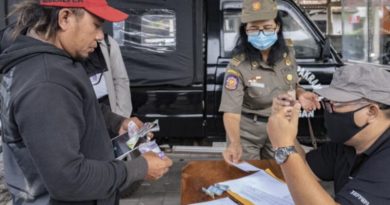POLITICS: JAKARTA- As Democracy Declines Globally, Will Indonesia’s Upcoming Elections Offer a Ray of Hope?
.
Nusa Dua. With less than six months to go until the 2019 presidential and legislative elections, will Indonesia offer a ray of hope to a world experiencing democratic backsliding?
The Economist Intelligence Unit’s Democracy Index showed that more than half of the 167 countries assessed in 2017 received lower scores that the previous year due to among others, declining popular participation in elections and politics, declining trust in public institutions, dwindling appeal of mainstream parties, a widening gap between political elites and electorates, a decline in media freedoms, and erosion of civil liberties, including curbs on free speech.
The latter was particularly evident in Indonesia, which suffered a setback in democracy with the jailing of former Jakarta Governor Basuki “Ahok” Tjahaja Purnama on blasphemy charges.
What happens in elections in Indonesia, the world’s third-largest democracy with a population of around 260 million, will therefore also impact the state of global democracy.
This year coincidentally also marks the 20th anniversary of the downfall of the authoritarian Suharto regime and the beginning of an era of democratic reform, known as Reformasi.
Speaking during the 11th Bali Democracy Forum in Nusa Dua on Thursday, Foreign Minister Retno Marsudi pointed out that Indonesians had chosen democracy in 1998, despite strong economic growth, which on its own, she said, does not guarantee equality or prosperity for all.
“That is why Indonesia chose democracy as a new path of development. We wholeheartedly believe that a democratic system will allow every individual to participate and thrive in the process of development and nationbuilding,” Retno said in her opening address during the two-day event.
Indeed, during Suharto’s 32-year rule, known as the New Order, the Indonesian economy experienced rapid growth, reaching an average rate of 9 percent during the late 1980s.
However, Indonesians realized that they wanted more inclusivity and the best way to accomplish this, was through a democratic system based on transparency, good governance and checks and balances, which eventually led to the Reformasi.
Retno said democracies stagnate and regress due to a lack of inclusivity.
“Many members of society remain marginalized. Democratic institutions have been failing to provide a sense of security for all, equitable prosperity for all, and the protection of pluralism and diversity,” she said.
Though Indonesia has a relatively young democracy, there has been a peaceful transfer of power between the country’s five presidents since the end of the New Order regime. The last two presidents, Susilo Bambang Yudhoyono (for two terms) and President Joko “Jokowi” Widodo, were directly elected.
.
ADS by Cloud 9:
.
– SPACE RESERVE FOR YOUR ADVERTISEMENT –
.
.
Lessons From Indonesia
Indonesia’s democratic track record and vibrant political system have made the country an example for the world to emulate – a sentiment shared by many participants at the Bali Democracy Forum.”What happens here in Indonesia is of fundamental importance to the state of democracy worldwide, and as such, Indonesia can be a good example for the rest of the world,” Danish Ambassador Rasmus A. Kristensen told the Jakarta Globe on the sidelines of the event.
Yldiz Pollack-Beighle, the foreign minister of Suriname, aired a similar opinion.
“To me, Indonesia has been a leader [in democracy] and that we being here [in Bali] can learn a lot,” she said.
Ruben Dario Molina, Venezuela’s deputy foreign minister for Asia, the Middle East and Oceania, said the Bali Democracy Forum highlights Indonesia’s “solid democracy.”
“And the form in which Indonesia conducts their democracy has a great influence in the world,” Molina said.
Indonesia will hold simultaneous presidential and legislative elections for the first time in April next year, with about 189 million voters expected to participate, according to the latest update from the General Elections Commission (KPU).
“I think the past few elections have been done in a democratic way, and I have no doubt that the next round will be one more addition to the very good history of Indonesia’s development of democracy,” Japanese Ambassador Masafumi Ishii said.
Manlio Di Stefano, Italian undersecretary of state for foreign affairs, said elections offer perfect opportunities for countries’ citizens to demand change.
“I think every election is an opportunity for people to ask for better results, and then after the election [it] needs to [be followed up] with what the politicians promised during their campaign,” he said.
Indian Ambassador Pradeep Kumar Rawat said the strength and success of democratic institutions in Indonesia send a strong message to the global community.
“[It says] that democracy can succeed anywhere in the world,” Rawat said.
ADS by Cloud 9:
.
– SPACE RESERVE FOR YOUR ADVERTISEMENT –
.
.
Challenges
Indonesia is not immune to the challenges democracy faces around the world, and it must be mindful of ways to nurture the system to best deliver for the people.Danish Ambassador Kristensen said one of the key challenges for Indonesia and many other countries was ensuring that young people are aware of the importance and privilege of voting.
“Having the opportunity to vote actually means that you can change things,” he said.
ADS by Cloud 9:
.
– SPACE RESERVE FOR YOUR ADVERTISEMENT –
.
.

All photographs, news, editorials, opinions, information, data, others have been taken from the Internet..aseanews.net | [email protected] / For comments, Email to : Aseanews.net

